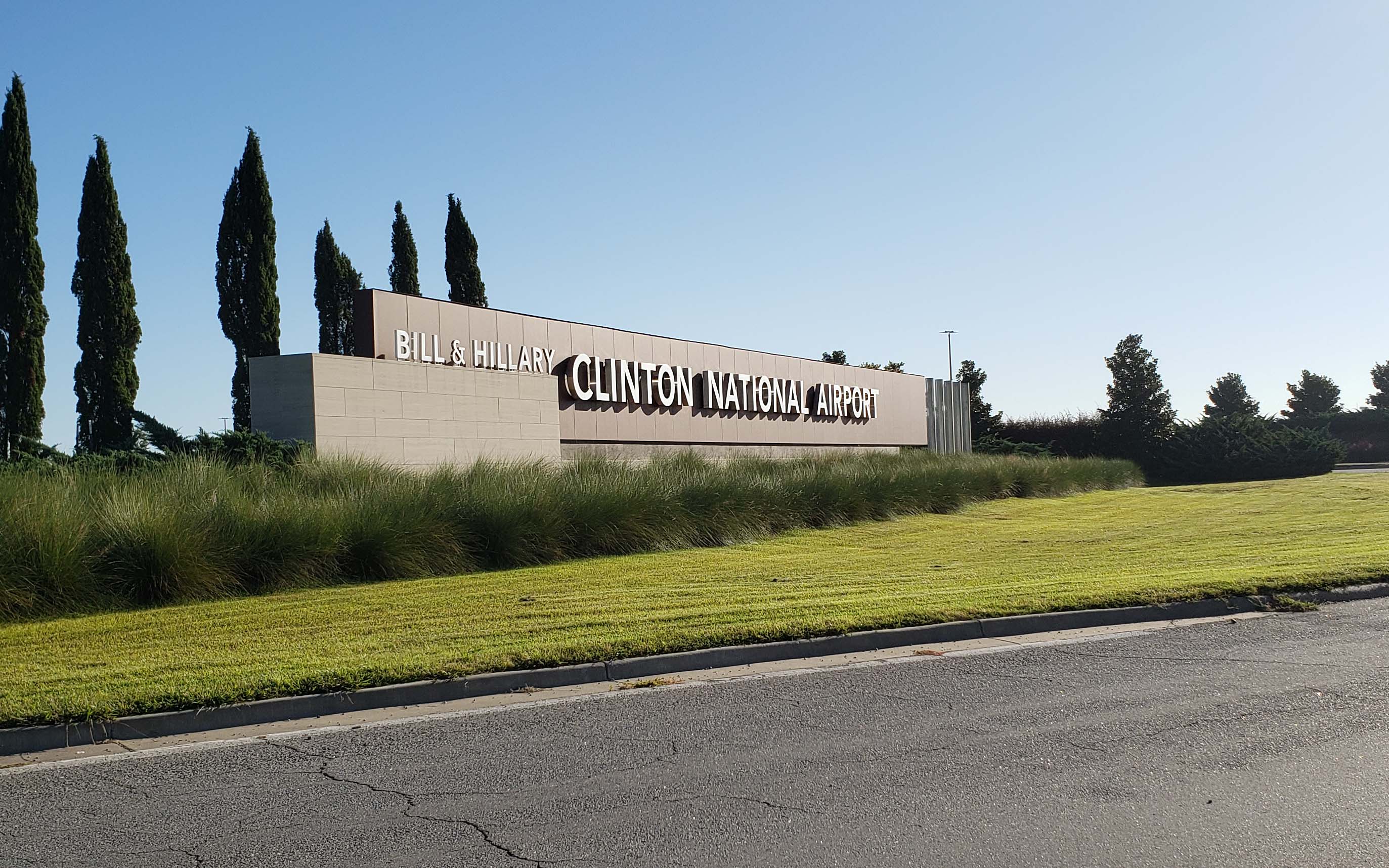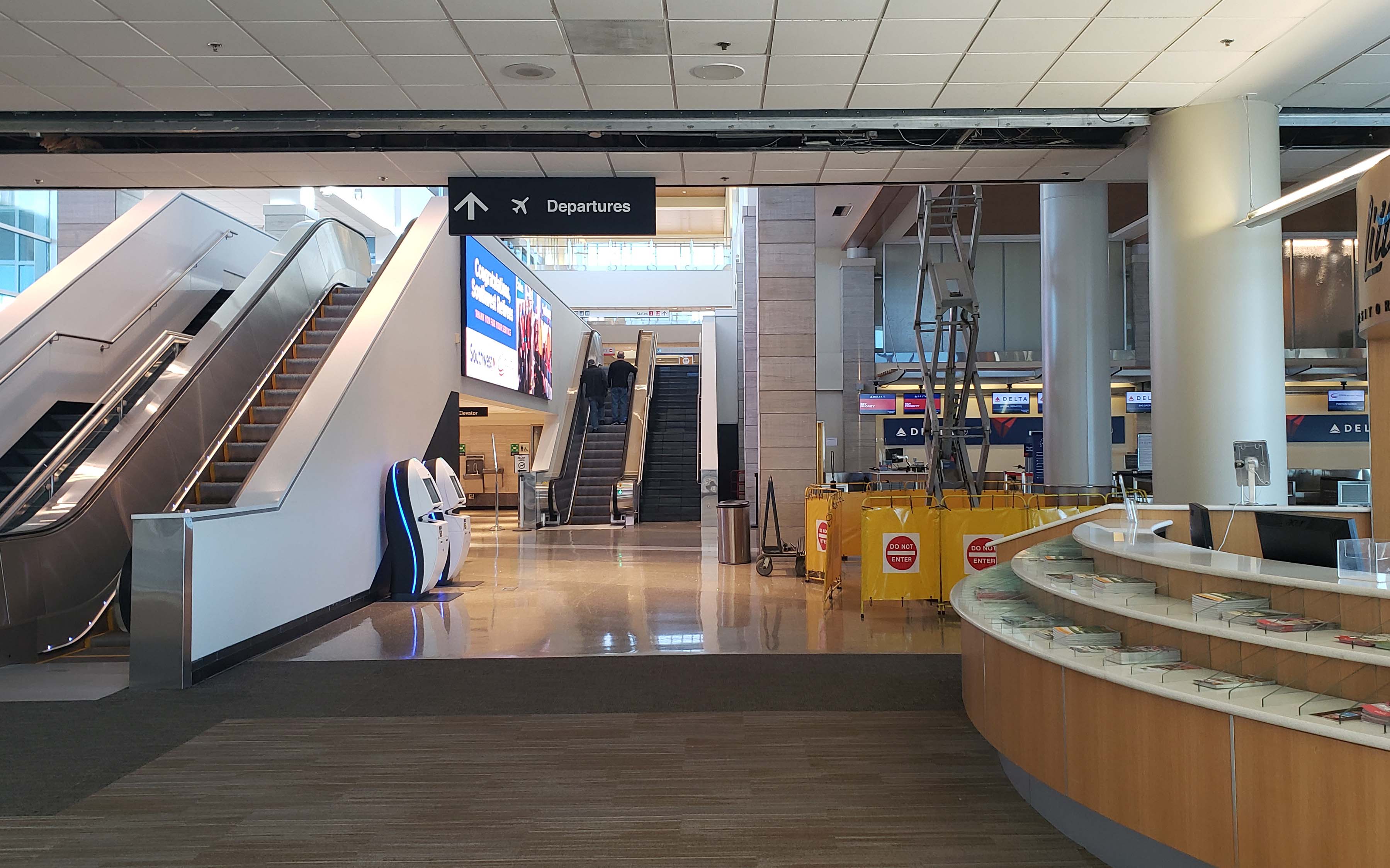Arkansas’ thriving aviation, airline industry faces possible cutbacks ahead of looming CARES Act deadline
October 5-11, 2020
By Daily Record Staff
Among the key Arkansas industries struggling to stay afloat during the ongoing pandemic, there is none facing more difficulty at long-term recovery than the once robust airline and air transport industry that is also one of state’s largest employers.
Recent data from the U.S. Census Bureau shows that Arkansas’ aviation, aerospace and defense industry is behind only the Natural State’s agriculture and the transportation and logistics sector. According to the Little Rock-based Arkansas Aerospace and Defense Alliance, the industry is also the state’s number one trade business, generating 15.4% of state’s total exports and more than $1.8 billion in annual revenues.
Altogether, Arkansas’ aviation and aerospace-related companies over 10,000 jobs, the alliance notes. Also, under the $2.2 trillion Coronavirus Aid, Relief and Economic Security (CARES) Act approved by Congress in late March, the largest economic relief package in U.S. history included several major provisions offered billions of dollars in support to the travel industry.
In late April 2020, for instance, the Treasury Department reached agreements with several U.S. airlines to provide discretionary CARES Act funds under the Payroll Support Program that provided emergency funding to keep workers employed after most of the nation’s airlines were grounded in the spring by social distancing and stay-and-home orders.
On Wednesday (Sept. 29), the U.S. Department of the Treasury announced that it has closed loans to seven large passenger air carriers, including Alaska Airlines, American Airlines, Frontier Airlines, JetBlue Airways, Hawaiian Airlines, SkyWest Airlines, and United Airlines. Treasury officials said they expect the initial loan amounts will be increased because some major airlines determining not to move forward with loans due to the availability of financing in the private markets. The reallocation of funds will be subject to a loan concentration limit of $7.5 billion per passenger air carrier, or 30% of the $25 billion available for passenger air carriers.
“The payroll support and loan programs created by the CARES Act have saved a large number of aviation industry jobs, and kept workers employed and connected to their healthcare, during an unprecedented time,” Treasury Secretary Steven Mnuchin said in a statement. “We are pleased to conclude loans that will support this critical industry while ensuring appropriate taxpayer compensation. We call on Congress to extend the Payroll Support Program so we can continue to support aviation industry workers as our economy reopens and we continue on the path to recovery.”
Under the rules of the CARES Act measure, airlines could not cut domestic routes or payroll through the third quarter if it received any of the COVID-19 bailout funds. However, many airlines have threatened to begin laying off employees soon if Congress does not include a six-month extension of PSP funding, which requires airlines to keep their employees on the payroll through Oct. 1.
Fort Worth, Texas-based America Airlines, which is largest airline and one of the top employers at the Bill and Hillary Clinton National Airport and the Northwest Arkansas Regional Airport (XNA) in Bentonville, has said it will move to cut jobs, routes and other services in fourth quarter due to low travel demand. Texas airline, which lost $2.7 billion in the second quarter, has announced plans to cut 19,000 jobs once its $5.8 billion in CARES Act funding runs out on Sept. 30.
“This was one of the most challenging quarters in American’s history,” said American Airlines Chairman and CEO Doug Parker. “COVID-19 and the resulting shutdown of the U.S. economy have caused severe disruptions to global demand for air travel.”
Arkansas economic impact unknown
What is not known is how this job cut will impact the company’s local commuter airline Envoy, which invested $2 million to build a new aircraft maintenance facility at the former Hawker Beechcraft hanger in 2016 and bring 60 high-paying jobs to Little Rock. Envoy is the former American Eagle feeder airline that operates nearly 200 aircraft on about 1,200 daily regional flights to more than 150 U.S. destinations.
Envoy also operates a maintenance base at XNA that expanded in 2007 to provide maintenance support for the 21 American and American Eagle departures it offers from XNA to Charlotte, Dallas/Fort Worth, Chicago, Los Angeles and New York LaGuardia. That Northwest Arkansas and Little Rock maintenance shops employ about 150 workers, along with dozens more at the airports’ terminals.
In a Aug. 25 update on the economic impact of COVID-19, industry trade group Airline for America, or A4A, reported that weekly passenger volume for U.S. airlines was 70% below year ago levels. At the same time, domestic and international departures for U.S. airlines was also down 47% from the same period of 2019. That downturn, A4A officials said, has caused U.S. airlines to ground more than 2000 planes, or 20% of the U.S. fleet.
Besides American Airlines, other A4A members that receive billions of dollars in CARES Act funding are also up against the Sept. 30 deadline to keep thousands of workers payroll. In June, many of the U.S. airlines received funding from the U.S. Treasury after pledging to refund tickets who were denied access to travel after the FAA began checking passengers’ temperatures for COVID-19 at U.S. airports.
On June 29, A4A members voluntarily implemented pandemic policies that now or require passengers to complete a simple health acknowledgment during the check-in process, along testing for COVID-19 symptoms and exposure. The new policy also requires passengers to wear face covering at the airport, on the jet bridge and onboard the aircraft.
For example, United Airlines on Sept. 24 became the first U.S. airline to launch a COVID-19 pilot testing program for travelers that could make it easier for them to manage quarantine requirements and entry conditions of popular destinations around the world. Starting on Oct. 15, customers traveling on United from San Francisco International Airport (SFO) to Hawaii will have the option to take a rapid test at the airport or a self-collected, mail-in test ahead of their trip.
Despite its best efforts, United Airlines (UAL in July report what company officials called the most difficult financial quarter in the international carrier’s 94-year history, posting a net loss of $1.6 billion. In the report, United CEO Scott Kirby said the Chicago-based airline burned through $40 million cash per during the three-month period ended June 30, despite raising $16.1 billion through stock and debt offerings and receiving $5 billion from the Payroll Support Program.
At a recent news conference in Washington, D.C. on Sept. 22, Kirby and other airline industry executives and union leaders pressed Congress for extended federal assistance after Sept. 30 until travel demand returns or risk a massive wave of layoffs in the fourth quarter.
“We’re going to know far more about a (COVID-19) vaccine and when a vaccine is available,” Kirby said during a press conference after meeting with top House and Senate officials. “The problem for us today is that is so far over the horizon that we put our own companies at risk if we don’t do something in a world where our revenues are down 85%.”
In addition to top airlines such as American and United threatening to layoff off thousands of workers across the U.S., some carriers have also indicated they would halt some flights to regional hubs if planes were not full. A recent A4A COVID-10 impact update notes Arkansas is ranked 24th among the 50 states experiencing the greatest impact on air service and air-travel demand due to the virus. That same analysis shows Arkansas airfields, including the Bill and Hillary National Airport and the Northwest Arkansas Regional Airport (XNA) in Bentonville, have seen a 49% decline in departures.
By comparison, the highest ranked states of New York and New Jersey, have seen U.S. and international passenger drop of 71% and 67%, respectively. A4A further noted in the Aug. 13 report that the industry has a long recovery ahead. Air travel took three years to recover from 9/11, and more than seven years after the Great Recession in 2008, the association said.
Locally, monthly data provided by the Clinton National Airport showed there were 38,114 enplanements or an average of 1,338 daily passenger boarding’s through Sept. 30, down nearly 42% from 92,052 a year ago. There were 21 daily departing, down from 42 in 2019.
“Our biggest passenger drop was April 8 with 153 enplanements and an average of 13 passengers per flight,” said Little Rock National Airport spokesman Shane Carter. “For September, there has been an average of 61 passengers per flight.”
Through July 31, Clinton National reported $14.9 million in operating revenue, compared to $20.6 million in 2019, down 28%. There was also a $13 million reduction in operating revenues projected for 2020 as compared to 2019. Carter said Arkansas’ largest airport has also received $25.1 million in CARES Act grant funding to compensate for revenue loss for the next two years.
“Thankfully, the airport is in solid financial condition, but we believe it will take several years for the airline industry to recover,” said Carter. “Most commercial airports have high bond debt. Clinton National is one of only nine debt-free airports in the county.”
Among the Big Four carriers at the Little Rock airport, which include American, Delta, Southwest and United Airlines, total enplanements, deplanes and total passenger bookings were all down nearly 50% or lower through August. According to U.S. Travel, more than half of travel-supported jobs in the U.S. disappeared between the onset of the pandemic and May 1, and the overall U.S. economy is projected to lose $1.2 trillion this year because of the drop-in travel. Prior to the pandemic, travel was a Top 10 employer in 49 states and the District of Columbia.
(Photos by Daily Record Staff)




